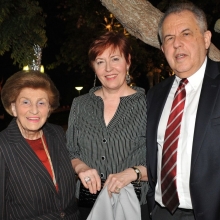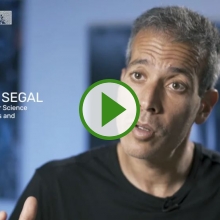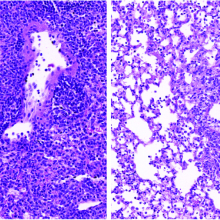Bright Sparks
Ethiopian students get a taste of high-tech
People behind the science

What does it feel like to write your very own computer code, build an electric circuit, or help manufacture a high-tech product?
Participants of the Sparks of Science Program in Memory of Moshe Pergament have had the chance to find out, thanks to a unique collaboration with Nova Measuring Instruments Ltd., a Rehovot-based high-tech company, in which they are doing hands-on learning about the fascinating world of electronics.
The Sparks of Science Program at the Davidson Institute of Science Education exposes promising young students of Ethiopian origin in grades 9-12 to the world of science. The program offers extra-curricular classes, a mentoring program, and courses in math and English. In its 13 years of operation, the program has seen its graduates flourish, going onto top-flight units in the Israel Defense Forces, obtaining science degrees from Israeli universities, and launching satisfying, stimulating careers. The program has been graciously supported in recent years by the Pergament family of New York, which recently extended their support for an additional five years.
A year ago, Sparks of Science came together with Nova, which produces measurement solutions for the semiconductor industry. Nova has a track record of volunteering with disadvantaged communities in the Rehovot area, and its management was impressed with the Sparks of Science program and in particular the large number of girls involved. “We wanted specifically to promote women in science,” says Ziv Avni, Service Operation Manager at Nova and the project’s head volunteer. So the company decided to create a “pay-it-forward” project that will help the young students learn about electronics and gain a sense of social responsibility at the same time.
Nova contacted Milbat, a non-profit organization that provides aids for the disabled, and offered its technical services in building and repairing electronics. Milbat asked Nova to build a device that would help children with impaired hearing. So Nova, Milbat, and Sparks of Science decided to join forces on a single project: Nova would build a prototype for the hearing-impaired community and Milbat would test its utility. Meanwhile, throughout the prototype-development process, Sparks of Science students would learn about electronics design and manufacturing and witness the construction of a real product come to life.
During the last year, 30 Nova volunteers have taught 15 students key concepts in electronics and manufacturing. “The participants gain some insight into science, and they are also empowered by its usefulness for others. It’s a win-win situation,” says Avni.
The product itself is relatively simple, at least in high-tech terms. By using ready-made electronic kits, a team led by Idan Ben-Zour, Utilities Engineer at Nova and one of the project’s leading volunteers, constructed a system of speakers and controls for children with hearing impairments following a cochlear implant. As part of the rehabilitation process of these children, the device helps them to regain important skills such as audio-based spatial orientation (identifying where a sound is coming from and the source’s distance). The prototype includes only the most basic features, yet its open-source technology allows anyone - from parents to professional clinical communication therapists - to create additional training scenarios with ease.
Nova constructed a detailed array of 20 lesson plans and experiments, led by its employees, for the Sparks of Science students. Throughout the process, Nova volunteers related the classroom instruction to the design of the prototype they were constructing for the hearing-impaired.
The results of this project, says Ben-Zour, were astonishing. ” It was thrilling to see the students’ growing understanding of the world of electronics and to witness their enthusiasm.”
Hagit Molko, a 10th grade student from Ashdod and a project participant, said: “I found the process of product manufacturing very interesting and when I grow up I would like to work in the field of engineering.”
Speaking to the parents of the graduates at the Sparks of Science commencement ceremony on June 29, Prof. Israel Bar-Joseph, Vice President for Resource Development and Public Affairs, said, “This is your celebration. Your children were given an opportunity that you didn’t have.” Speaking to Irving and Hana Pergament, he continued, “The program has become part of the Pergament family and the Pergament family has become part of it. This program is an amazing success story that is full of life and is a wonderful way to memorialize your son Moshe.” This year, 114 students participated in the Sparks program.
Adi Strod, representing the Pergament family, said that the family will continue to support the program which is a fitting “legacy to perpetuate the memory of Moshe.”
The Sparks of Science Program is supported by Avri Havron, the estate of Sandra L. Gold, the estate of Sunny Howard, Hannah and Les Wende, Eric Rubin, Gabriel Tolchinsky, Irving Pergament, the Roel C. Buck Family Foundation, Claire Weis, Renee Companez, and the Pearl Welinsky Merlo Foundation.









